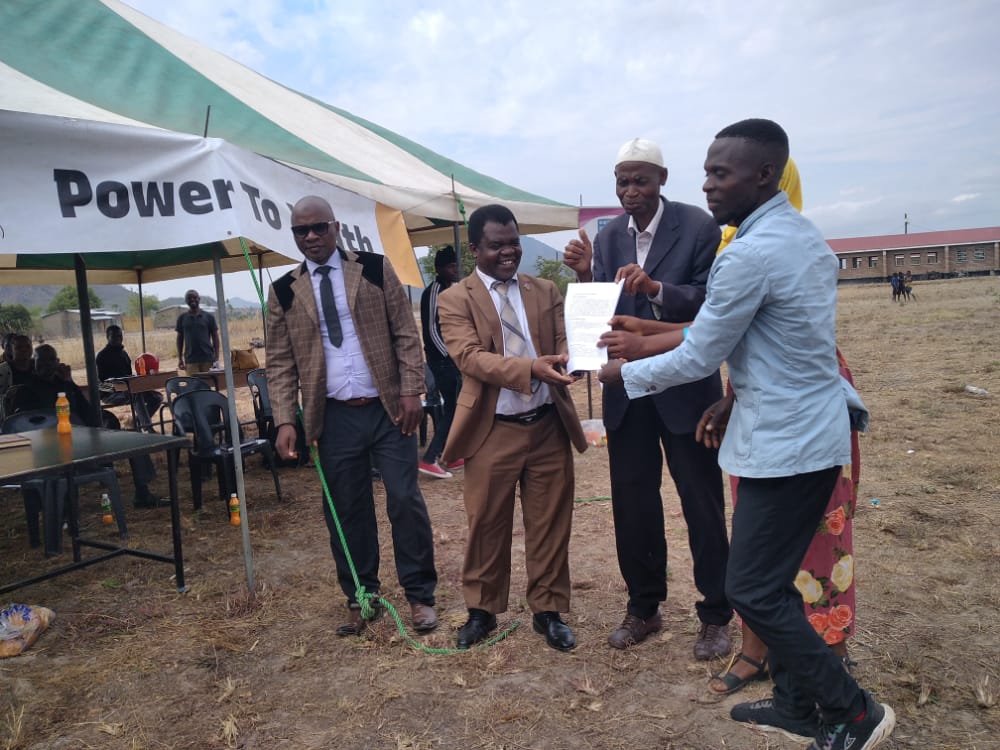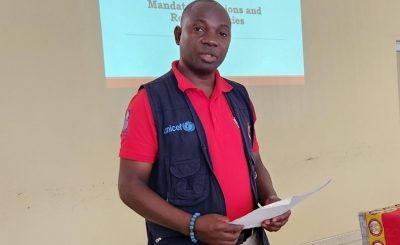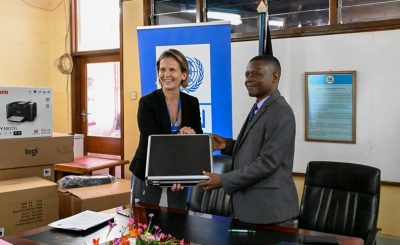Youths in Traditional Authority Sale’s area in Machinga district have asked authorities to come to their rescue and put-up measures to ease their access to various services in the area.
The call was made during an interface meeting between the youth and government officials that was organized under the Power to Youth project which is being implemented in the district with a consortium of six organizations.
One of the youth representatives at the meeting, Julius Bamusi, cited the long distances youths cover to seek sexual reproductive health and rights services to the nearest health care, which is about 14 Kilometers.
“The distance we cover just to access SRHR services is very long. We cover 14 kilometers to get to the nearest hospital because there is no hospital in our area and this still contributes to the rising cases of teen pregnancies,” explained Bamusi.
Bamusi also lamented the unavailability of a police unit and lack of security in the area saying it frustrates access to justice as perpetrators easily flee to the neighbouring Mozambique once they get wind of news that they are being haunted by the police.
This according to Bamusi is a huge setback and it affects the youths in various aspects.
However, Bamusi was quick to say that the Power to Youth project has enabled them to be empowered to be agents of change as they have contributed to the fight against child marriages, having terminated over 20 child marriages and reintegrated some of them in school.
Commenting on the calls, Chief Education Officer for Machinga district, Douglas Namikungulu, who received the petition from the youth acknowledged the challenges that youths are facing in the areas and said government will look into it.
“We cannot talk about development without looking at the welfare of the people we serve and in these areas it unfortunate that access to services is a serious challenge, as such at the moment we are looking at short term measures to support these communities which include using mobile health clinics, as we still look for funds to implore the long-term solutions,” Namikungulu said.
Program Advocacy Coordinator for Malawi Sexual Reproductive Health Rights Alliance, Yewo Gondwe, said the move by the youth is a clear indication that youths are now empowered and can ably demand for the services they need from their duty bearers.
The interface meeting was aimed at highlighting factors contributing to child and early marriages and unintended pregnancies among others.
Power to Youth Project is being implemented by a consortium of six organizations including AMREF Health Africa, Youth wave, Center for Human Rights and Rehabilitation, Malawi Sexual Reproductive Health Rights Alliance, Center for Youth Empowerment and Civic Education, and the Malawi Human Rights Resource Center, and it seeks to provide a platform for youth to bring to light the challenges and needs in the bid to address Sexual Gender Based Violence, child marriages and early and unintended pregnancies in the impact areas.





